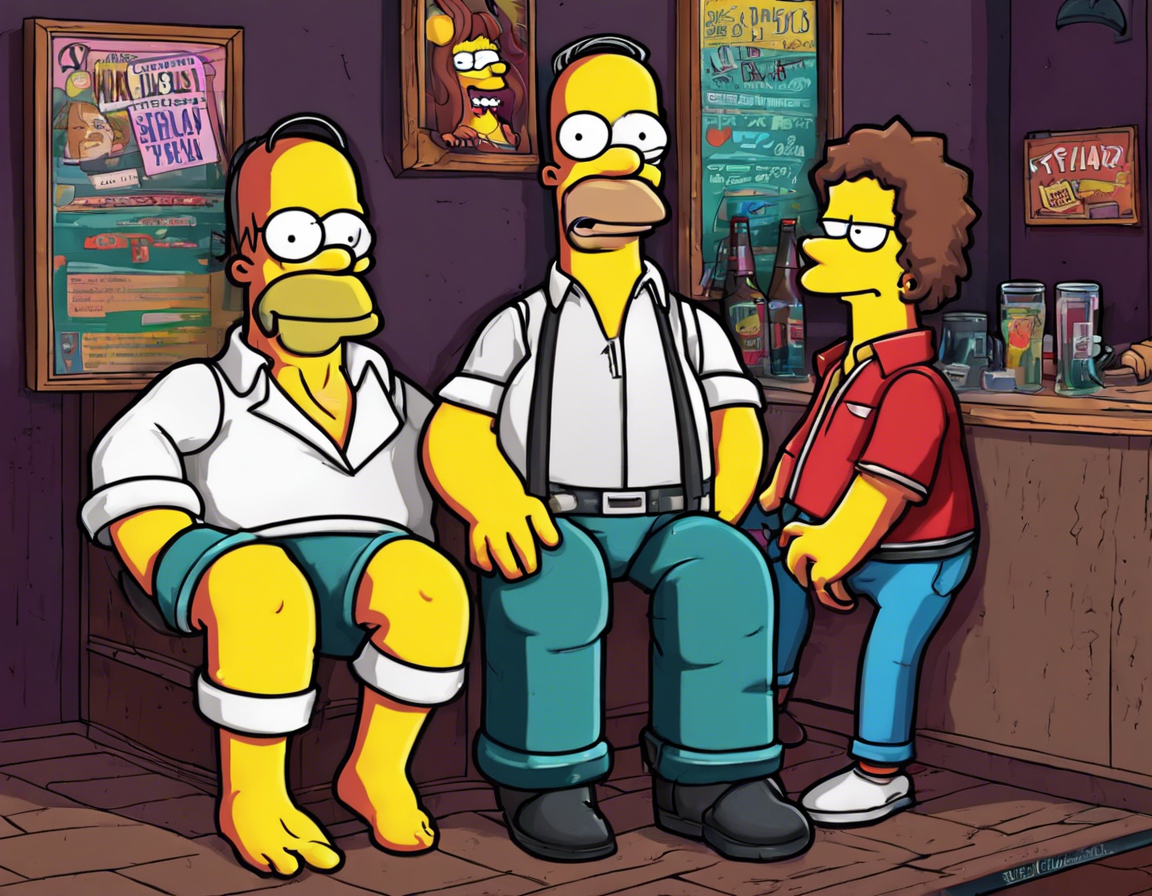It’s been over 30 years since the iconic animated sitcom “The Simpsons” premiered on television, and Larry Barfly’s death remains one of the most unforgettable moments in the show’s extensive history. The beloved character, who was a regular at Moe’s Tavern, met his untimely demise in the Season 2 episode titled “Homer vs. Lisa and the 8th Commandment.” This particular episode delved into the theme of ethics and morals as the Simpson family grappled with the repercussions of cable piracy.
The Backstory
Larry was known for his regular appearances at Moe’s Tavern, where he could often be found drinking beer and engaging in lively conversations with fellow patrons such as Homer Simpson, Barney Gumble, and Moe Szyslak. He was portrayed as a quintessential barfly, someone who found solace and camaraderie in the dimly lit corners of the tavern.
Larry Barfly’s Death
The episode that marked Larry Barfly’s death was centered around the moral dilemma faced by the Simpson family when Homer decides to illegally cable television. As the episode unfolds, Homer’s daughter Lisa becomes increasingly guilt-ridden over the stolen cable, leading her to disclose the illegal activity to Reverend Lovejoy. In a chain of events that follow, Barney inadvertently reveals the cable theft to the cable company, resulting in the entire town losing access to cable.
During the ensuing chaos at Moe’s Tavern, Larry Barfly makes a fatal misstep that seals his tragic fate. Enraged by the loss of cable and the unexpected turn of events, the usually mild-mannered Homer Simpson exclaims, “I’ll kill you!” in a fit of frustration. Unbeknownst to Homer, Larry had just slipped behind him to use the payphone. In a cruel twist of fate, Larry Barfly misinterprets Homer’s outburst as a genuine threat and suffers a fatal heart attack on the spot.
Impact on the Show and Fans
Larry Barfly’s death had a profound impact on both the show and its audience. It served as a stark reminder of the consequences of impulsive actions and unforeseen circumstances. The fleeting nature of life and the fragility of human existence were poignantly highlighted through this unexpected turn of events.
Fans of “The Simpsons” were taken aback by the sudden and somber departure of a character who had been a fixture at Moe’s Tavern for so long. Larry Barfly’s death served as a narrative device that underscored the larger themes of morality, guilt, and accountability that were central to the episode.
Conclusion
As “The Simpsons” continues to entertain audiences around the world with its witty humor and relatable characters, Larry Barfly’s death remains etched in the annals of television history as a poignant and memorable moment. Though his time on the show was brief, the impact of his demise reverberated throughout Springfield and served as a sobering reminder of the fragility of life and the unexpected twists of fate that can change everything in an instant.
Frequently Asked Questions (FAQs)
- Was Larry Barfly a recurring character on “The Simpsons”?
-
Yes, Larry Barfly was a recurring character who frequented Moe’s Tavern in the early seasons of the show.
-
What led to Larry Barfly’s death on the show?
-
Larry Barfly’s death was a result of a misunderstanding stemming from Homer Simpson’s exclamation in a moment of frustration.
-
How did fans react to Larry Barfly’s death?
-
Fans were surprised and saddened by the unexpected demise of Larry Barfly, as it highlighted the unpredictable nature of life on the show.
-
Was Larry Barfly’s death a pivotal moment in “The Simpsons” history?
-
While subtle in its execution, Larry Barfly’s death served as a significant moment that underscored larger themes of morality and accountability.
-
Did Larry Barfly’s death have lasting repercussions on the show’s characters?
- While the immediate impact of his death was felt by those present at Moe’s Tavern, the repercussions of his demise were not a central focus in subsequent episodes.
Remembering Larry Barfly’s death allows fans to reflect on the complex and often poignant storytelling that has made “The Simpsons” a beloved and enduring television classic.
